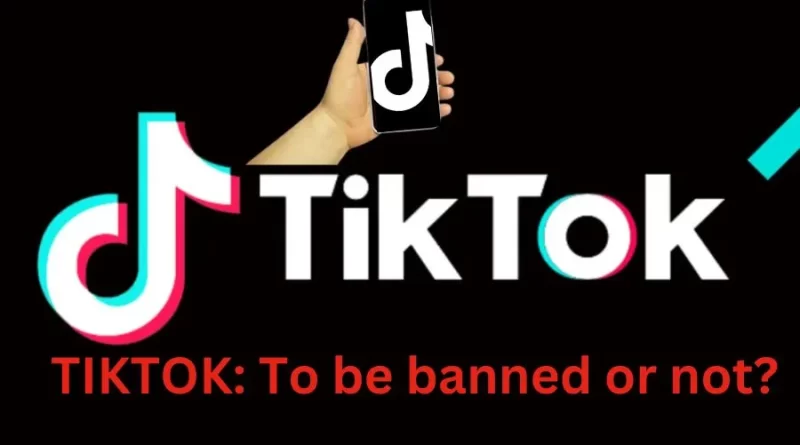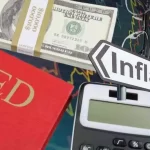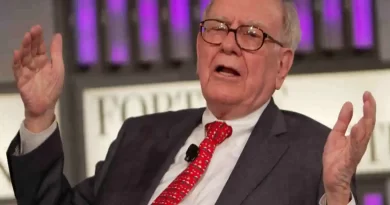Trump for TikTok ban in the beginning, now pledges support
Zuckerberg’s ‘Meta’ stands to gain its shares increase
The day before January 19 when Trump is all set to take oath as President, TikTok might have to make a final decision regarding the sale of the company. Or else, according to the present Biden administration, face a ban for security reasons. In his first term, Trump himself was at the forefront to ban it altogether.
Till then, the company might be in limbo about the course of action from its side, nevertheless, if, according to David Greene, the civil liberties director of the US-based Electronic Frontier Foundation (EFF), Trump remains undecided about revoking the law.
Initially, the original version of the law came in the form of the Foreign Adversary Controlled Applications Act and was introduced for the first time in the House of Representatives. A shorter terminology was applied later, when it was grouped together with a Senate Bill deciding about the aid from countries to Israel, Ukraine and Taiwan.
The methodology going to be used for the purpose of ‘retrieving’ TikTok as per the Trump statement during his campaign trails, remains unclear. Nonetheless, the lawsuit will take years to take effect as Google and Apple hosting the app in their store are also involved. At the same time, according to the law, it doesn’t ban TikTok wholly but is set to block both internet companies’ app stores from distributing the short-form videos of the former.
The company lawsuit read, “For the first time in history, Congress has enacted a law that subjects a single, named speech platform to a permanent, nationwide ban, and bars every American from participating in a unique online community with more than 1 billion people worldwide.”
ByteDance, the TikTok owner further in his lawsuit argued that the ban violated the freedom of speech of more than 170 million American users. If the law has its course, app content creators and advertisers will face a stark future.
The app owner has an opportunity to repeal the ban in the Supreme Court, which will have a final say in the matter. Meanwhile, an expert on global tech regulations at Georgetown Law in Washington, DC, Anupam Chander says that Trump could ask the US Congress to empower him to negotiate a different arrangement with ByteDance and TikTok that takes security concerns into account.
Tried to walk through some steps Trump could take to try to save TikTok–though that prospect has dimmed even just today. https://t.co/a9hFhhznjm
— Anupam Chander (@AnupamChander) December 9, 2024
“(And yes), even if TikTok stops working for a while because TikTok’s owners won’t sell at a fire sale price, Trump could convince Congress to change the law to bring it back.”
From a security point of view, TikTok poses a problem as far as its Chinese ownership is concerned. Those who support the proposed ban, say that China might use the video app to collect information by harvesting a huge database from its American users, by finding a back door entry into their devices.
Intelligence agencies of other countries apart from other organizations, can also get access, however, via US-based apps, if the latter happens to sell data to them. A US company Oracle and a dedicated US subsidiary have been proposed meanwhile by ByteDance, investing a huge sum of $1.5bn “Project Texas” in it for managing US data in the country itself, seen as a pacifying gesture.
Many countries like India, Canada, Australia, etc., already banned TikTok
Despite these efforts, US officials remain suspicious about its intentions with a common point of concern ‘security’ as far as its Chinese origins are concerned. It is a fact that many countries including Afghanistan, India, Nepal, Somalia, Australia, Canada and the United Kingdom have already banned TikTok from their countries. And in many cases, restricted the China-based app.
With a US ban looming large on TikTok, the sale is seemingly unlikely according to many observers, who argue that going ahead with it, means paving a way for accessing the secret app algorithm. Therefore, it is a moot question whether Beijing might allow the proposed sale.
In all this, META owned by Mark Zuckerberg, is set to gain from the chaos the ban has generated. Meta shares rose dramatically to 2%, a large chunk of it coming from the Reels designed by Meta a feature, Zuckerberg often talking during the company earnings call.
Designed to add to the revenue and to check the growing customer base of TikTok in 2020, Reels is bound to get the latter’s content creators and advertisers, if the ban is enforced. Meta being in the denial mode, isn’t revealing an exact revenue percentage, however, adding that about 60% of the latter comes through Reels.
In October, Susan Li, CFO agreed that Reels contributed a large chunk to the company and is, thus, adding positively to the overall earnings. An original content base is what keeps people sticking around the app and through and through into scrolling.
Zuckerberg further said that customers spend about 50% of their time on Reels compared to Instagram, as the introduction of Reels in 2020 paid off very well. Designed in a way that encourages customers to explore more of the photo- and video-sharing app, adding AI has also contributed to tweaking the recommendation feed.
This has made Reels the most sought-after application, as people prefer to scroll videos, in the same way TikTok has been ensuring throughout these years. Customers start first by trying Reels and then go on watching one video after another, as has been happening in the case of TikTok too.
Apart from META, another app YouTube shorts app is going to gain immensely if the ban is enforced. Another one, GOOG, GOOGL, owned by Google which is a short form of video service will also benefit from the ban, bringing enough revenue.








